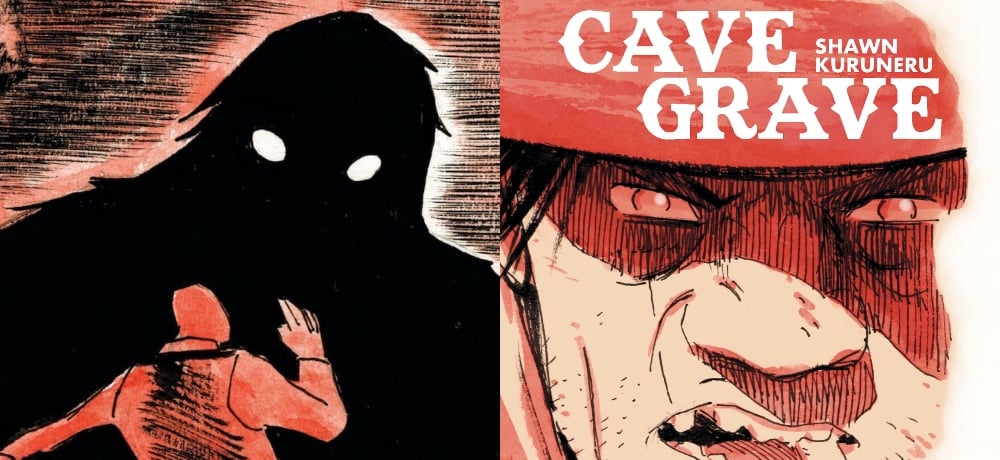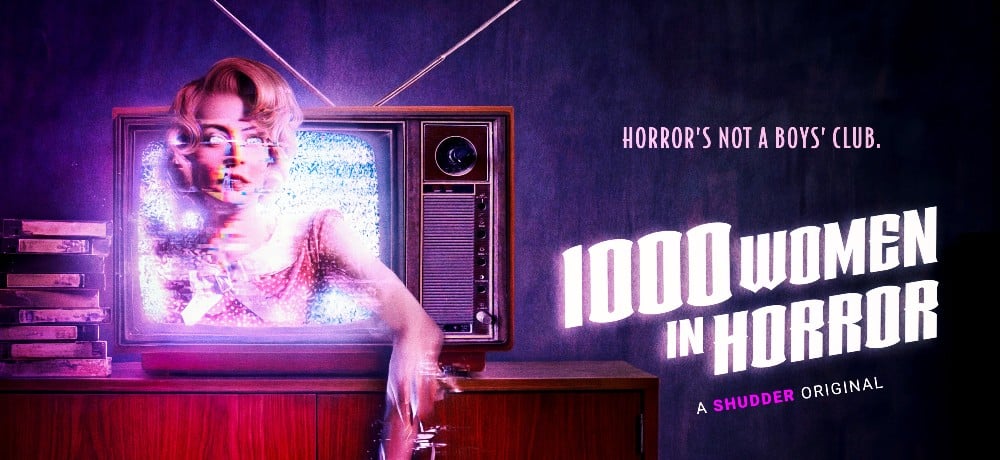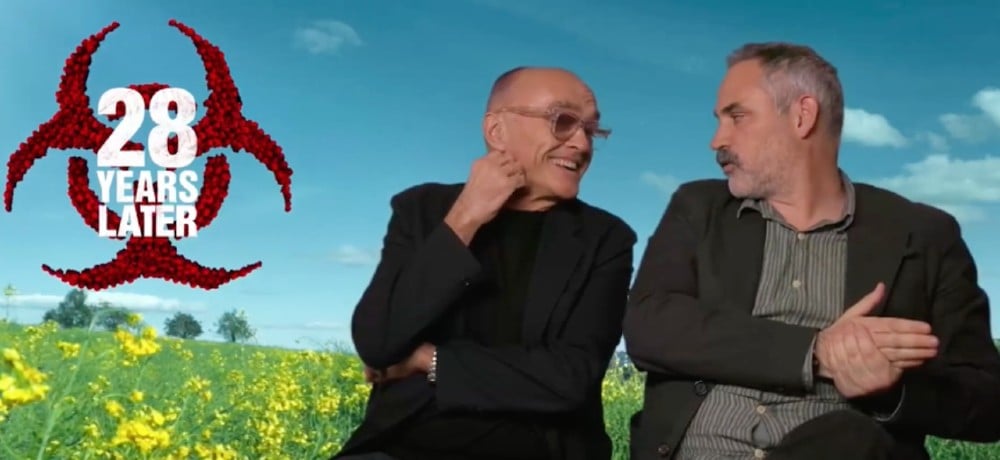






Alex Garland and Danny Boyle bring out great work in one another. On the one hand, there’s a director with an extreme sense of immediacy, capturing a time and place — usually at a rapid-fire speed. On the other hand, a screenwriter who’s a bit of a futurist, with a finger on the pulse of tomorrow. Together, Boyle and Garland’s sensibilities align just right for stories that bridge the present and future.
In the case of 28 Years Later, the past as well.
The sequel attacks the senses with humanity’s violent history as young Erik (Edvin Ryding) and his parents (played by Aaron Taylor-Johnson and Jodie Comer) run, shoot, and hide from the infected. Similar to much of Garland’s recent work, like Annihilation and Ex Machina, evolution horrifies — and occasionally even inspires — in 28 Years Later. It’s a visceral horror movie that sometimes accepts, rather than fears, the horrors of the new world.
We didn’t have time to unpack all of this with Boyle and Garland during a junket interview, but we did manage to ask them about their growth as storytellers and how they look back on the original film’s ending: Jim (Cillian Murphy) dying.
How do you feel you both evolved as storytellers since the first movie? What lessons along the way influenced 28 Years Later?
Alex Garland: Just speaking for myself, I've learned a lot. When Danny made 28 Days Later, he'd already made many films. I hadn't made any, so I was just much, much more inexperienced. And I've just learned more. I've learned more about filmmaking, and I've learned more about writing. To what degree of success or not is for other people to judge, but I definitely know what I knew back then in comparison to what I know now, and there's a big difference.
What about you, Danny?
Danny Boyle: So, I've learned a series of aphorisms, and they all come from editing, actually — funnily enough. And the big one is: there are only two things that matter in a film—the beginning and the end. And the beginning, not so much. And you think, "Oh, stop it. Oh, shut up. That's nonsense." But actually, it's true because you spend your whole time making a film looking for the ending. I really, really believe that. Now I understand that. And it often gets distorted into Hollywood wanting to change the ending and things like that. But actually, you are on a quest for your ending.
What’s that quest look like?
Danny Boyle: By that, I don't mean that you are changing the ending — the plot in it. The ending can be written and be perfectly acceptable, but it's how you arrive there and how you get all the vehicles and engines and equipment and characters and feelings to arrive there together at the same price. It's bizarre, but that's my learning curve, and it's ongoing.
You both have always been bold with your endings. With 28 Days Later, Jim originally died. How do you reflect on that original ending? How’d people react to it at the time?
Alex Garland: I don't think we changed it as a consequence, as it were, of how people reacted to it. It was how we reacted to it. And there's something else, which is — I mean, it probably sounds like telling tales, but it isn't really. It's just a fact. When we shot the first film, we literally ran out of money. And so, there was a point where the film just kind of stopped, and that ending was very quickly put together. And then Danny spent — I dunno how long, let's say five months or something — editing it. And then you reflect on it and you look at it and you think, "This just isn't the right ending for this story."
And there are all sorts of other aphorisms, other sorts of truisms about film — like film is automatically better if it's shot on 70mm or whatever, 60mm, whatever fucking mil it is. And one of them is that the idea of reshoots is somehow lesser — like something has been compromised if you do a reshoot. But if you think of a film and how many unknowns there are as you're making it, and how many discoveries there are — and should be, really — within the edit, then suddenly you see a reshoot can be an organic, natural part of a piece of filmmaking.
And there are some very good examples of films that, for one reason or another, had to shut down three-quarters of the way through production. So there was a chance to work for three months on the edit and then really refine how everybody came back together to finish the film. And so, my memory of the ending of 28 Days Later was—it was like that. We saw it, and it created a feeling that just didn't feel right. So we came up with the other ending.
Danny, what’s your memory of the original ending?
Danny Boyle: Yeah, it's funny. I thought we shot— I thought we shot him dying separately, afterwards.
Alex Garland: Well, that's what I mean. We ran out of money at the point where the car drove out through the gate.
Danny Boyle: So when did we do the Lake District [for the final ending]?
Alex Garland: Way later. Yeah, way later. So when the car drove out through the gates, that was the last day of principal photography. We didn't have an ending. Then a few weeks later, we shot this really odd little ending. It was like, "Well, what do we shoot with $20,000?"
Danny Boyle: And that was at Greenwich Hospital with Naomie Harris [and Jim dying].
Alex Garland: And then, way later, we were like, "No, hang on a minute. We've got it. We've got—"
Danny Boyle: The Lake District [with the cabin].
Alex Garland: And we went. There were like four other endings. They got boarded.
Danny Boyle: Yeah, we did. Well, in fact, we voiced over — Alex is forgetting this — he voiced over the ending on the storyboards. I was a bit surprised you agreed to it, to let yourself perform.
Alex Garland: Burn, burn that USB stick — whatever it is. Floppy disk drive or something.